A Force Such as the World Has Never Known: Women Creating Change
$19.99 – $34.95
edited by Sharon G. Mijares, Aliaa Rafea and Nahid Angha
Print: 978-1-77133-056-5
Accessible ePUB: 978-1-77133-057-2
PDF: 978-1-77133-059-6
428 Pages
November 05, 2013
Acknowledgements
Foreword
Jean Shimoda Bolen
Chapter 1
Women Gathering: An Introduction
Sharon G. Mijares, Costa Rica/usa
Chapter 2
Rising Phoenix: Weaving Peace
Sharmin Ahmad, Bangladesh/usa
Chapter 3
Women Building Peace Against All Odds
Leymah Gbowee, Ghana/Liberia
Chapter 4
Empowering Women and Girls—Empower Nurses: Discovering Florence Nightingale’s Legacy of Global Citizenship
Deva Marie Beck, Canada
Chapter 5
Protecting Mother Earth: The African Women’s Sanctuary—Stories of Support, Struggle and Success
Despina Namwembe, Uganda
Chapter 6
Women’s Movements and the Democratic Transition Process in Brazil: Effectiveness of Rights and Judicial Politics
Rosane M. Reis Lavigne, Brazil
Chapter 7
This Precious Human Life: How to Turn an Ordinary Life into an Extraordinary Adventure
Anahata Iradah, usa/India/Nepal/Brazil
Chapter 8
Advocating Women’s Rights in Palestine
Hana Kirreh, Palestine
Chapter 9
A Serving Nation: Gathering People Who Serve to Create a World that Works for All
Elly Pradervand, Switzerland
Chapter 10
Tibetan Women: Devotedly Defiant
Tenzin Dhardon Sharling, Tibet
Chapter 11
Women and Wisdom: Culture in India
Renuka Singh, India
Chapter 12
Feminine Democratization of the Society
Parvin Ardalan, Iran
Chapter 13
Changing the World from the Kitchen: Tubu-Tubu Peace Food
Yumiko Otani, Japan
Chapter 14
The Female Social Enzyme: The Italian Case
Paola Conti, Italy
Chapter 15
The Long and Winding Road to Reproductive Rights in Mexico
Maria Luisa Sanchez-Fuentes, Mexico
Chapter 16
Obedient, Beautiful and Silent
Gal Harmat, Israel
Chapter 17
Inter-religious and Intercultural Dialogue: Supporting the Human Rights of Women and Children
Annie Imbens-Fransen, Netherlands
Chapter 18
The Strength of Our Nations Lies in the Hearts of Our Native Women
Susan Masten, Yurok Nation
Chapter 19
Costa Rica: A Nation without a Military Presence
Ana Marcela Garcia Chavez, Costa Rica
Chapter 20
Conscious Mothering: New Routes of Transformation
Elena Tonetti-Vladimirova, Russia
Chapter 21
Women Politicians in One of the World’s Most Equal Countries
Magdalena Andersson, Sweden
Chapter 22
And God Created Circles
Rufaida al Habash, Syria
Chapter 23
China: Balancing Gender, Art and Global Feminism Project
Sharon Mijares, usa/Costa Rica
Chapter 24
Breaking the Power of Patriarchy: Finding a Voice for Ugandan Women
Joy Kemirembe, Uganda
Chapter 25
One Woman’s Experience in a Changing World: Physical Challenges Do Not Prevent Us from Acting for the Betterment of the World
Diana Rhodes, United Kingdom
Chapter 26
Voices from Venezuela: Women’s Paths to Recovering Power
Aura Sofia Diaz and Cecilia Vicentini, Venezuela
Chapter 27
From Devotion to Action: The Sufi Women’s Organization
Nahid Angha, usa
Chapter 28
A Dawn of a New Era
Aliaa Rafea, Egypt
Chapter 29
We Honor Her Beauty, Now It’s Time to Embody Her Power
Sharon Mijares, usa
Chapter 30
Conclusions: Envisioning a Balanced World
Aliaa Rafea, Egypt and Nahid Angha, usa
Contributor Notes
2 reviews for A Force Such as the World Has Never Known: Women Creating Change
| Format | Printed Copy, ePUB, PDF |
|---|

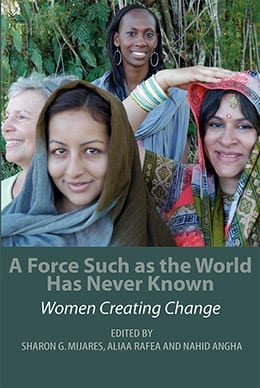

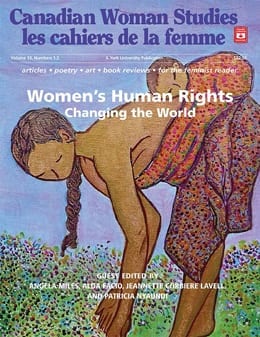

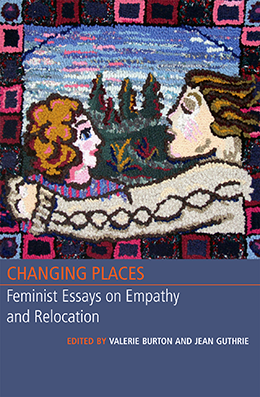

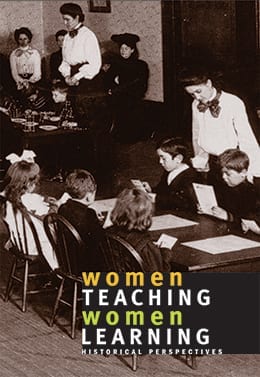
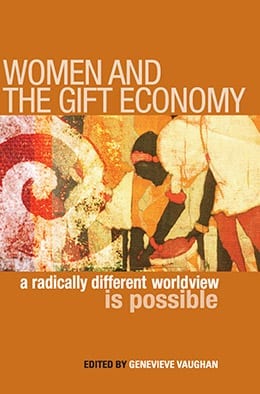
InannaWebmaster –
The Daily Star (Dhaka) – April 15, 2014
Women on the March
Reviewed by Syed Badrul Ahsan
“The truth is self-evident. Women are the change-makers today, all around the world. And it is not just in politics but on a deeper, larger level as well. Change must always come through a demonstration of courage. In these past few decades, courage has arisen in women aplenty, to a point where they are now leading voices in a transformation of societies nearly everywhere. No, not everything is smooth. There are the usual obstacles, the old male chauvinism, the ancient taboos about what women should and should not do. Even so, the barriers are being crossed, or broken down, ever so clearly and decisively.
The caveat, of course, is there — that women are yet objects of sexual gratification for men in diverse regions of the globe and are yet subject to patronizing by men. That last point comes through in Sharon J. Mijares’ simply titled essay, Women Gathering, in this revealing compilation of write-ups on women’s changing role in enabling social change. Mijares notes the reluctance of men, even now, to treat women as their equals. She observes the behaviour of a spiritual leader from Africa:
‘He sits on a stage with three male disciples behind him, as he requests that the women from his group gather in front of the stage on the floor below. He introduces, thanks, and dismisses them, as he moves on to other content within his speech. He does not invite any of these women to join him on that stage.’
And that is where the difficulty comes in, this unwillingness on the part of men to share the stage with women. In this work, however, writers straddling a whole world make it obvious that while women may yet be trapped in the prison of male obstinacy, they are beginning to loosen the shackles and emerging into sunlight on their own. To be sure, societies such as the one in Saudi Arabia still remain feudal. And with religious fanaticism, of the kind propagated by such outfits as the Taliban in Afghanistan and Pakistan and the Hefazat-e-Islam in Bangladesh, rearing its monstrous head, there are reasons to be worried about the future of women in Islamic societies. Equally true, though, is the determination of women to resist any encroachment on their hard-earned liberties by the forces of obscurantism.
Sharmin Ahmad, in her exposition of women’s issues in Rising Phoenix: Weaving Peace, seems to be underscoring just such a point through her incisive essay on the perils Bangladesh’s women went through in the course of the country’s war of liberation in 1971. In a conflict that left as many as three million people dead and tens of thousands of women dishonoured by the Pakistan occupation army, there was yet the courage in some of the women to speak up, even if it was to be many years later. Ahmad’s narrative focuses on the trauma Ferdousy Priyabhashini was subjected to for months on end by the army and its local henchmen in Khulna. Ahmad’s point is without ambiguity: when Priyabhashini decided to reveal the tale of her sorrows, it was sheer courage she was resorting to. In a society which has traditionally considered a raped woman as a fallen woman, Priyabhashini’s decision to inform the country of what was done to her was a saga of courage in its totality. She is, as Sharmin Ahmad would say, a rising phoenix. Note Ahmad’s assessment:
‘Ferdousy buried her tormenting past in silence, and attempted a fresh start. She became her own counselor. When memories of genocide and torture became unbearable, she would meditate and surrender to God. . . The natural world provided her with means to speak – to say things her lips could not repeat. Nature spoke to her and she spoke through Nature.’
The canvas expands through the work. Tenzin Dhardon Sharling, in her passionate essay Tibetan Women: Devotedly Defiant, expounds on the courage Tibet’s women have systematically demonstrated since the region was seized by China in 1959. The narrative brings to light hitherto unknown realities, owing to a total ban on news of happenings inside Tibet, about the ways in which Tibet’s women have waged their own war of resistance against the Beijing authorities. Of particular poignancy is the repression and humiliation a group of fourteen nuns, known as the Drapchi Fourteen (Drapchi being the prison wzzhere these women were detained following anti-China protests between 1987 and 1989 in Lhasa) went through as a consequence of their political activism. In 1993, these nuns, with apparently nun Ngawang Sandrol in the lead, were able to smuggle out a cassette on which they had recorded songs of freedom, resistance and faith. These nuns were to be severely punished by the Beijing authorities.
Uganda’s Despina Namwembe has a larger issue to handle and is indeed equipped to deal with. Her essay, Protecting Mother Earth, dwells on the role of women in conserving nature through a proactive role in interacting with the land. Women are still challenged by resistance to a bigger role for them over matters relating to the land. That does not in any way permit them to rest easy when it comes to handling household issues. Men are nowhere on the scene. Take it from the writer, in her own words:
‘Traditionally in Africa, the young women and their daughters are in charge of making sure that there is food prepared for all family members.’
That is an onerous task, as women striving to push Liberia and Ghana into a region of peace know only too well. As Leymah Gbowee notes in her Women Building Peace Against All Odds, for years until the fall of Charles Taylor in Liberia, mothers watched helplessly as their young daughters were kidnapped and raped and their young sons were drugged and recruited as boy soldiers by the various warlords in the region. By 2002, in the run-up to which over 200,000 people had been killed in Liberia, women through the Christian Women’s Peace Initiative had decided that ‘if men chose to go to war, their wives would withhold sex.’ These women did more: they compelled the two sides in Liberia’s civil war to hammer out a peace deal. Until they did, the women would lock the men in the conference room and bar the door. Security forces threatened to place Gbowee under arrest, to which she responded in a novel way:
‘. . . I began to strip naked in front of them. This was the strongest act of indignation I could demonstrate. Even though many of these men had most likely raped other women, combining violence with sex, they were immensely shamed at my demonstration.’
Liberia’s women eventually won victory of a remarkable kind. They saw Ellen Sirleaf Johnson elected president of Liberia.
Other stories by other women, all of them privy to assertive self-esteem, abound in this work. Collectively, they are a statement — that women across the world are moving on, that with men running out of ideas about the world, it is time for women to govern, to save the Earth.
Syed Badrul Ahsan is with The Daily Star
InannaWebmaster –
————–
The Interfaith Observer – March 15, 2014
http://theinterfaithobserver.org/journal-articles/2014/3/15/a-force-such-as-the-world-has-never-known-women-creating-cha.html
Reviewed by Paul Chaffee
“Matthew Arnold, the distinguished Victorian poet and essayist, is credited with saying, “If ever there comes a time when the women of the world come together purely and simply for the benefit of [hu]mankind, it will be a force such as the world has never known.” Were Arnold with us today, and could read A Force Such as the World Has Never Known: Women Creating Change, he would be nodding his head in happy satisfaction.
As Jean Shinoda Bolen says of them in the Foreword, “They are women who rescue, teach, and empower girls and women and are advocates for positive change in judicial and religious institutions.” Their stories come from “Syria, Japan, Costa Rica, Brazil, Bangladesh, Tibet, India, China, Israel, Palestine, Egypt, Liberia, United Kingdom, Iran, Uganda, Venezuela, Sweden, Canada, and the United States of America.”This book takes on the very toughest subjects: living in the midst of war, terror, rape and abuse of women and children, the dangerous struggle for women’s rights, and much, much more. At a glance, it looked like a tough read – and it goes on for 406 pagesSo I was startled to get pulled into each chapter, slowing down to catch the details, and then, like a good mystery story, finding myself compelled to start the next chapter right away. It was counter-intuitive; story by story I was buoyed. These 28 women, each with a chapter, take us through the nightmares of cultural oppression, unspeakable violence, and poverty. But one by one, in impossible situations, their work turns fruitful, leaving you cheering for the ways human beings, led by women, can make the world a safer, better place.
These women come from a variety of faiths, as well, but it is a deep spirituality and a creative genius for constructive cultural change that indelibly marks them as leaders. They are grassroots-grounded, articulate and well versed, walk the talk, take all sorts of risks, and are active nationally and internationally. Each has made a huge difference in her chosen arena. Women’s rights in Iran after Ayatollah Khomeini took over – ending war and chaos in Liberia – using the Dances of Universal Peace to actually generate peace – the environmental passion and raw courage of women in Uganda reclaiming the Earth – a campaign to enroll nurses to address the enormous unaddressed medical needs of the world – inspiring the Dalai Lama to overturn Tibetan Buddhism’s historic sexism – returning Japan to its indigenous heritage of the Divine Feminine (Ama-terasu) through diet – transforming how babies and birth are treated in Russia … the list goes on and on.
These writers have bulging resumes, beautifully captured in 15 biographical pages at the end of the book. More importantly, they are a new breed of leaders, with different assumptions, values, and goals than the dominant culture. In the lead essay, co-editor Sharon Mijares writes:
The patriarchal paradigm, with its extreme emphasis on corporate power, greed and related wars, is moving all the organic life rapidly into extinction. It is time for all humanity to makes choices and related actions that create peace, economic security and environmental care for all – rather than for a small segment of humanity, a specific race, region or gender.
Buddhism, the Green Tara represents the Buddha of enlightened activity. – Photo: WikipediaLater in her opening essay Mijares sketches the history of the Divine Feminine, glossing the likes of Quan Yin, Sophia, and Tara, along with lesser known figures from indigenous traditions. (Explicitly or implicitly, all 28 authors address the Divine Feminine in their own contexts.) Mijares also surveys psychological literature about leadership, a discussion packed with provocative notions, such as, “Women need to heal their relationships with other women in order to clear out dominating and destructive behaviors.”
Mijares’ colleagues in editing this book, Aliaa Rafea and Nahid Angha, write the final chapter, drawing conclusions from all that’s been presented. They happily admit the stories are promising, but go on to survey the huge task ahead. They point out that they are a part of what is being called “transnational feminism,” designed “to work as one human family, respecting our diversity and enriching our experiences.” They conclude with a discussion of the “spirituality in action” that characterizes every page of the anthology.
One notes, in passing, that the three editors all are Muslim, though in no way is this a Muslim book. It’s worth mentioning simply because the enablers of this spiritual treasure are representatives of a growing community of mainstream Muslims in our midst who are making pioneering contributions benefiting us all. These three women deserve gratitude and congratulations from all of us.
The best use of A Force Such as the World Has Never Known: Women Creating Change will be as a primary text in leadership training courses for the 21st century. Three stories a week for a semester would offer a rich diet, inspiring long conversations about core values, leadership, and transforming the world. For men as well as women, please, for whom it should be at least as valuable. If you care about what women can teach us about healing the world, buy your own copy. It’s an interspiritual feast.
Women Creating Change’s lasting impression, for this reader, is hope. Not a Pollyanna ‘every thing’s going to be all right’ kind of hope, not a sigh of relief that the work has been done. No cheap hope here. But each one of these writers, and the sisters with whom they stand, indeed represent a force the world has never seen. We are the better for it, and we can learn to be like them.”